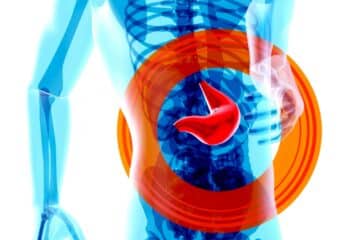Acupuncture: A Promising Solution for Gastrointestinal Issues
Acupuncture, a cornerstone of Traditional Chinese Medicine, is gaining traction as a non-pharmacological approach to managing gastrointestinal (GI) disorders. By stimulating specific acupoints, acupuncture regulates the gut-brain axis, reduces inflammation, and improves digestive function. Scientific studies highlight its effectiveness for conditions like irritable bowel syndrome (IBS), functional dyspepsia (FD), and functional constipation (FC), offering hope to those seeking relief from chronic digestive woes.
A 2021 systematic review found acupuncture significantly improves IBS symptoms, including abdominal pain and bloating, often outperforming pharmacological treatments. Another study on FD showed acupuncture alleviates symptoms like postprandial discomfort and epigastric pain, with effects lasting up to eight weeks post-treatment. For inflammatory bowel diseases (IBD) like Crohn’s and ulcerative colitis, acupuncture reduced disease activity scores and inflammation markers in clinical trials, suggesting it as a valuable adjunctive therapy. Acupuncture enhances gastric motility and regulates gut microbiota, addressing issues like constipation and diarrhea.
The mechanisms behind acupuncture’s benefits involve neuromodulation and vagal nerve stimulation. It influences brain regions like the anterior cingulate cortex and prefrontal cortex, which regulate GI motility and visceral sensitivity. Acupuncture also promotes the release of digestive enzymes and anti-inflammatory compounds, improving nutrient absorption and reducing discomfort. While some studies note methodological challenges, such as inconsistent control groups, the growing body of evidence supports acupuncture’s role in GI health.
Why did the stomach go to acupuncture? It was tired of being in a knot! Jokes aside, acupuncture’s minimal side effects—mild soreness at needle sites being the most common—make it a low-risk option compared to long-term medications. For patients with refractory GI symptoms, combining acupuncture with conventional treatments can enhance quality of life, addressing both physical and psychological aspects of these disorders.
While more rigorous, standardized trials are needed to fully validate its efficacy, acupuncture’s holistic approach offers a compelling alternative for managing GI issues. Always consult a licensed acupuncturist and discuss with your healthcare provider to ensure it complements your treatment plan. With its blend of ancient wisdom and modern science, acupuncture is proving to be a gut-friendly ally.
References
- Systematic Review on IBS and Acupuncture: A 2021 study showing acupuncture’s effectiveness in reducing IBS symptoms like abdominal pain and bloating, often surpassing pharmacological treatments.
- Acupuncture for Functional Dyspepsia: Research demonstrating acupuncture’s ability to alleviate postprandial discomfort and epigastric pain in FD, with lasting effects.
- Acupuncture in IBD Management: A study indicating acupuncture reduces disease activity and inflammation in Crohn’s disease and ulcerative colitis.


